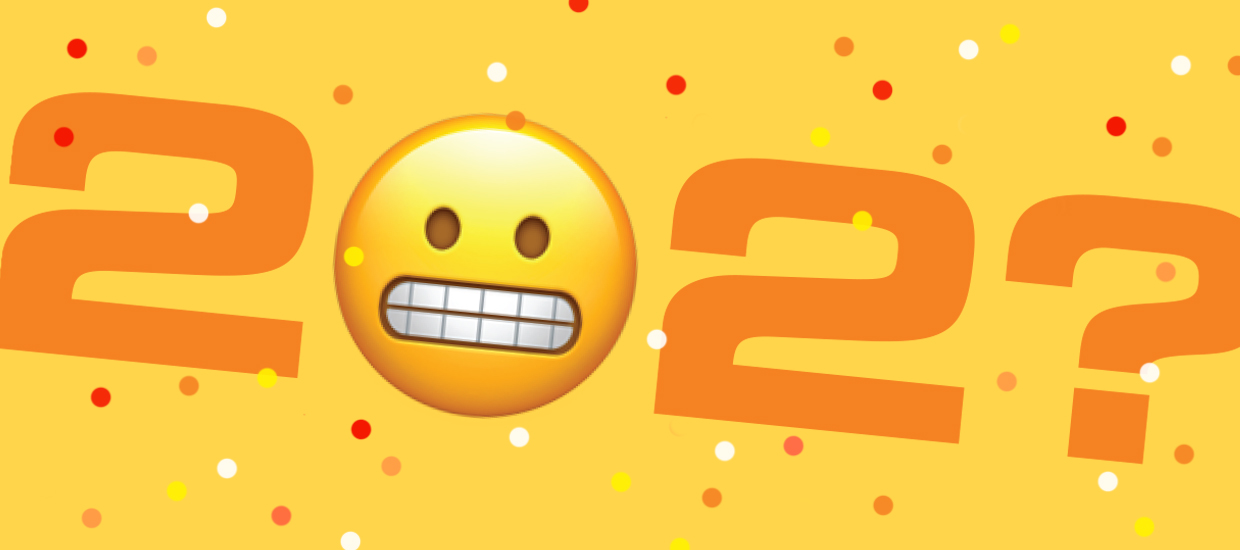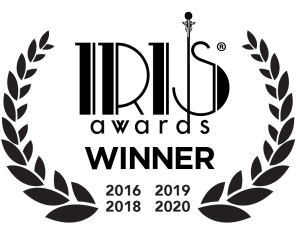
HAPPY 2022! Can you believe we’re still* talking about (and dealing with) this $@#% pandemic?!?
As we transition from a year full of ups and down into one full of unknowns, many folks are experiencing high levels of anxiety (raises hand). And this is by no means limited to adults. Kids and teens are right there with us.
The hardest part for me has been getting my hopes up, making plans, looking forward to the future…only to be sucked back into a new wave of quarantines and testing, and the accompanying stress and fear. For parents, the challenge has been and continues to be — how do I manage my own anxiety while also helping my kids cope with theirs? Sometimes it feels like the blind leading the blind.
I was once again privileged to participate in a conversation sponsored by Responsibility.org, this time featuring Lynn Lyons. Lynn is a therapist, anxiety expert, and co-host of the best-named podcast ever, Fluster Clux. The show offers worried and anxious parents tips on managing their family’s mental health.
Lynn had some great insight on helping kids to not just cope during stressful times, but thrive. She listed four emotional management skills we can help develop in our kids — which are also helpful to us grownups, too.
Skill #1: TOLERATING UNCERTAINTY
Not knowing what’s going to happen, yet still being able to function is a life skill we’ve all had a lot of practice at lately. This doesn’t mean we can just give up and not plan or prepare. Kids that have high levels of anxiety try to make everything happen perfectly. If a child has difficulty with change, it only amps things up when things go off course. Spend some time with your kids, each of you sharing unexpected things that happened that day, and how you managed (or didn’t manage) it. Offers ideas on how to respond differently next time.
I struggle with this quite a lot myself. I do lots of research, ask friends or experts on the subject, make lists, overthink, over shop. There’s a point where all this evolves from being prepared and working through stress, to obsession. I’m learning to recognize that point, walk away from whatever’s got me worked up, and do something to distract and calm myself. Going for a walk, reading, taking a nap, doing laundry — these help clear my head and give my mind time to reset, realize I’m as prepared as I can be, and rest assured that if things go off track, I’ll be able to adapt and move on.
Skill #2: INDEPENDENT PROBLEM SOLVING
Children that live in an anxious environment (either from their own anxiety or that of a parent) can lack independent problem-solving skills. Think helicopter parents. This became much more prevalent during quarantine, as parents and kids were always together, all day long. On top of the usual parenting roles, Mom and Dad became teachers, tutors, principals, study hall monitors, etc. It left little room for children to think or problem-solve on their own.
Parents need to take a step back and let their kids figure things out. Already a vital aspect of growing up, it’s even more important now.
As the father of a newly minted tween, I’m seeing daily the ways I can and need to let my son learn on his own. I’m constantly weighing the pros and cons of caution and control versus allowing him to make and learn from his own mistakes. I’m in a near-constant state of simultaneous pride at his growth and wanting to make sure he doesn’t fall behind. As we’ve regressed a bit in the latest bout of Covid variants, there’s a temptation to rein in the leash a bit. But I’m doing my best to recognize opportunities to allow/encourage my 12-year-old to think for himself.
Sill #3: DEVELOPING AUTONOMY
Similar to independent problem solving, part of tweens’ and teens’ development involves doing and experiencing things without their parents. Covid has and continues to hamper this important skill set. As the amount of space we have between our kids is in constant flux (currently closer in…again), how do parents lengthen the tether in a way that allows our children to experience and experiment with independence?
Our family made some progress in this during 2021. Being back in person for school certainly helped. Not overseeing playdates (and not calling them playdates anymore). Sending my son on walkable errands. Wading into the waters of phone ownership and social media. Each step required forethought on mine and my husband’s part, along with a cocktail of trepidation and trust.
What comforts me is knowing that it’s never a one and done process. If you allow your kids to go it alone from time-to-time, it only strengthens your relationship. In allowing some autonomy, kids will come back to you when they need advice or guidance. Or money.
Skill #4: ASSESSING REASONABLE RISK
Anxiety causes kids to perceive the world as a more dangerous place. While there is plenty of real danger out there, it’s up to parents to help educate our kids on the possible harm, as well as the possible benefits of taking risks.
Many parents (including yours truly) have become somewhat overreactive to the normal ups and downs of life. While this is understandable, we need to work through it and find ways to normalize uncertainty, discomfort, disappointment, problem solving, autonomy, and reasonable risk.
One way to help is to avoid using catastrophic language. This includes hyperbole; language with permanence: “Kids won’t ever catch up,” “Everyone’s getting omicron,” “When are you going to learn?”
Not only does this type of language produce anxiety, but it also produces the exact opposite result of what our kids need. Lead by example by not overreacting to difficult and stressful situations you or your child are going through. Whether it’s disliking a teacher, arguing with friends, heartbreak, or dealing with bullies, we need to let kids live through these things. Not everything can be “fixed.” Some things need to be experienced, learned from, and moved on from.
. . . . . . . . . . . . . . . . . . . . . . . . . . . . . . . . . . . . . . . . . . . . . . .
As with everything I share on this site, I hope you realize that whenever I give advice, I am giving it to myself as well. Writing out this list reminds me of the progress I’ve made, as well as things I can do to be a better, more effective parent. I hope it does the same for you.
While the post started out snarky, I’ll end on a note of sincerity. I wish you and yours a happy and healthy New Year. Here’s to 2022!
. . . . . . . . . . . . . . . . . . . . . . . . . . . . . . . . . . . . . . . . . . . . . . .
Responsibility.org is all about talking to your kids about all kinds of things, including responsible alcohol choices. Please check out their site for valuable info for parents and non-parents alike. An important fact: parents are the leading influence on a child’s decision to drink (or not drink). When conversations about alcohol between parents and kids increase, underage drinking decreases.
As a brand ambassador for Responsibility.org, I am being compensated to write this post. However, all opinions are my own.
*I almost named this post “STILL Parenting During a Pandemic.”




